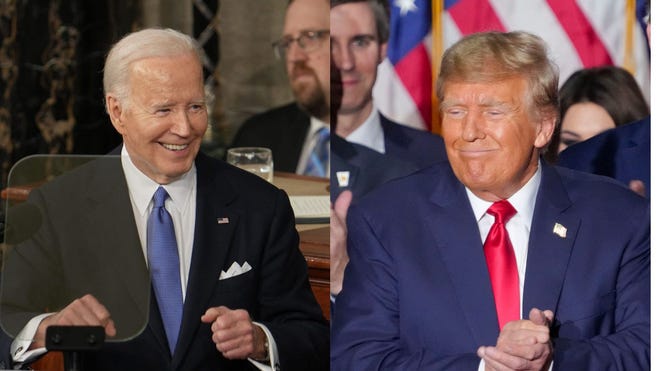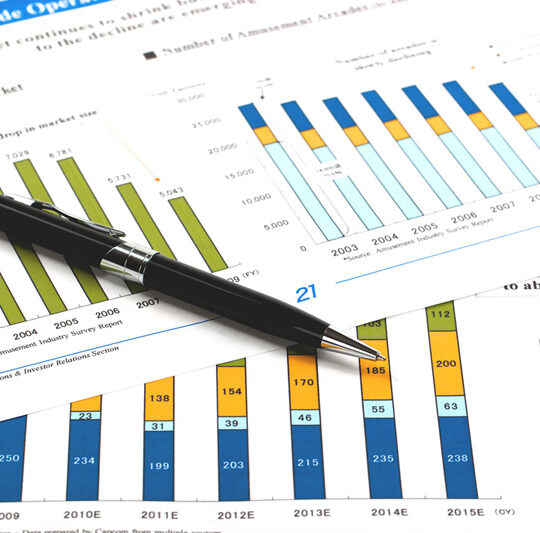
Donald Trump edged Joe Biden 40%-38% in an exclusive USA TODAY/Suffolk University Poll, a near-tie in a fluid electorate as the candidates head out of the starting gate.
The first USA TODAY survey since the two contenders effectively clinched their presidential nominations found a significant group of voters who were unhappy with their options and open to being persuaded, ingredients for a turbulent campaign ahead.
In what could be good news for Biden, an increasing number of Americans reported seeing green shoots in the economy, making the rosiest assessment of where it stands since the early days of his presidency.
“I think public awareness is starting to catch up with the reality that the economy is actually doing really, really well,” said Craig Richey, 62, a composer and university music teacher from Los Angeles who was called in the poll. A Democrat, he said the “noise machine on the other side” had drowned out Biden’s “phenomenal” accomplishments in rebuilding an economy that had been wracked by the pandemic.
But Nick Garcia, 40, a mechanic from Cadiz, Kentucky, who plans to vote for former president Trump, blamed Biden for the downturn he sees. “I think it’s just struggling to hang on,” he said of the economy in a follow-up phone interview. “When Trump was in office, I was doing really good.”
Prep for the polls: See who is running for president and compare where they stand on key issues in our Voter Guide














